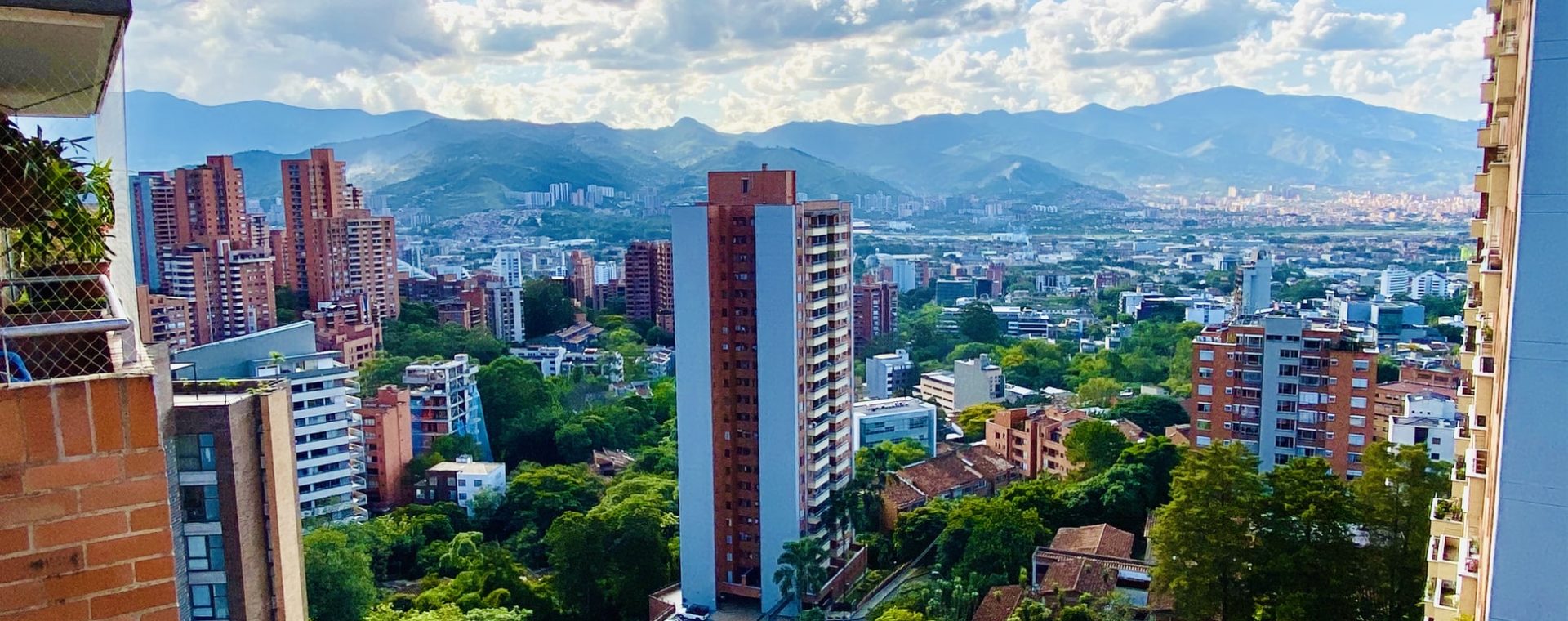
Medellín is a Colombian municipality, capital of the state of Antioquia. It is the second-most populous city in the country. The municipality is territorially organized in 6 geographical areas, which are made up of 16 Communes (275 official urban neighborhoods) and 5 Townships.
With a population of 2,550,000 inhabitants, Medellín has a territorial extension of 375 km2, where 73% of the territory corresponds to the rural area (275 km2) and the remaining 27% to the urban area (100 km2).
Between 2010 and 2018 the incidence of monetary poverty in Medellín went from 22% to 12%. And the incidence of extreme monetary poverty between 2010 and 2018 went from 5% to 3%. Last year, the extreme poor population in the municipality decreased by 21%, compared to the immediately previous year. Extreme poverty in Medellín was lower than that observed in the country, which was 7.4% for the year 2017.
After having been, at the end of the last century, one of the most dangerous cities in the world, due to drug trafficking, Medellín has managed to transform itself drastically and become an active, creative, and proactive city.
Medellín welcomed the Global Agenda for Sustainable Development Goals -SDG- since 2016 and the city has a local prioritization on the subject, with goals and indicators by 2030. Medellin’s learning ecosystem has been based on the city commitment to mobilizing its educational project through social organization for education and improving the educational quality of its institutions.
Colombian formal education system is made up of early childhood education, preschool education, basic education (five grades of primary and four grades of secondary), high school education (two grades that can be academic or technical and awards bachelor’s degree), and higher education that includes undergraduate and post-graduate degrees. In its non-formal scheme, it incorporates what is known as Education for Employment, Human Development (technical education) and Continuing Education.
To guarantee a culture of lifelong learning, Medellin has an offer of private and public institutions. There are also public institutions that support education such as the Teacher’s Innovation Center –Mova–, the Higher Education Agency of Medellín –Sapiencia–, Vivero del Software and the Center for the Fourth Industrial Revolution. Through their work, research groups and networks of teachers are constantly leading innovation processes, transferring knowledge and educational experiences. Within their models, they provide scholarships for teachers and students as well.
Sapiencia has impacted around 14,000 people through scholarships. It also has a digital education model –@Medellin– for higher education through ICT, which integrates the work of three public universities and has around 7,500 students now. Digital education is also provided for senior adults. A new campus is under construction in the western area of the city, which will provide higher education for 8,000 students.
Additionally, there is a network of artistic and cultural practices with an offer for infant, child, adolescent, and youth groups. It is formed by the network of Escuelas de Formación Artística that includes music, dance, performing, media and visual arts and another network, Red Catul, that integrates 16 cultural sites, which are spread throughout the city and have the capacity to impact around 400,000 people each year through various actions (including workshops and formative actions via different languages of art).
Buen Comienzo program, with the Early Childhood Consultative Committee, is made up of 18 local universities, one international university and led by the Ministry of Education. Its function is to support and cooperate in the generation of knowledge and positioning of Medellín’s Early Childhood Public Policy. The University-Company-State Committee (CUEE) facilitates the union of wills and knowledge between entrepreneurs, university managers, unions, and the local and regional government, for the formulation of joint work agendas in Research, Development and Innovation (R+D+i), with the purpose of reducing the gaps between the productive and academic sectors. “Cooperación Educativa”, a similar model of strategic alliances for the improvement of educational quality, includes partnerships among a university and a private school to attend the Institutional Educational Projects of official educational institutions that presented low levels of quality. “Permanencia Educativa” is a strategy to ensure universal coverage and inclusion of children and adolescents out of school. “Entornos Escolares Protectores” benefits students with programs of school coexistence, leadership, democracy, and peace.
By fulfilling the commitment to guarantee access, inclusion and learning for a dignified and peaceful Medellín, the city is implementing SDG´s and local policies and programs in a joint and co-responsible work, where different partnership models assign roles to stakeholders to ensure a Lifelong Learning Culture that involves the entire educational ecosystem of Medellin and that builds the foundations of Future Medellin.